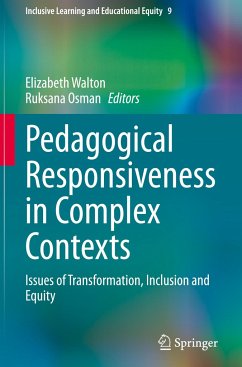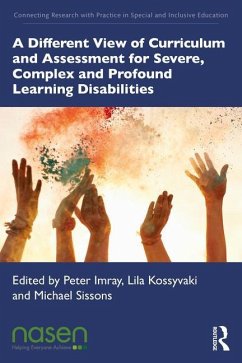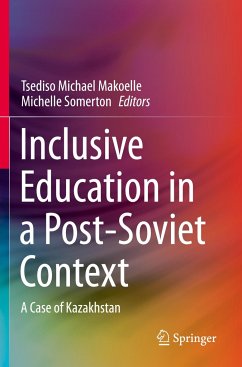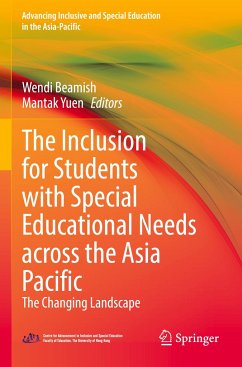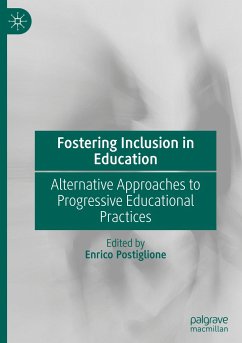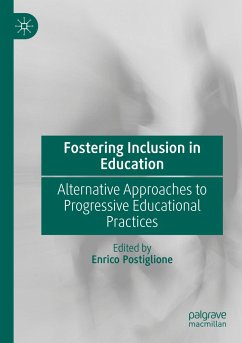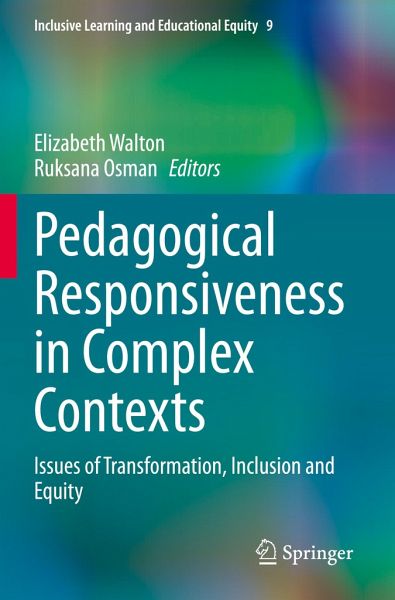
Pedagogical Responsiveness in Complex Contexts
Issues of Transformation, Inclusion and Equity
Herausgegeben: Walton, Elizabeth; Osman, Ruksana
Versandkostenfrei!
Versandfertig in 6-10 Tagen
83,99 €
inkl. MwSt.

PAYBACK Punkte
42 °P sammeln!
This book reflects a range of pedagogical responses to increasingly complex educational contexts. It finds this complexity in the interplay of a number of factors, including the diverse histories and identities of educational actors; institutional and systemic demands and constraints; competing conceptions of valued knowledge; and technological change. The chapters show the demand for pedagogical response to unexpected and unprecedented events (like COVID-19) and the importance of addressing barriers to access that become sedimented into institutional cultures. The authors, mostly from Global ...
This book reflects a range of pedagogical responses to increasingly complex educational contexts. It finds this complexity in the interplay of a number of factors, including the diverse histories and identities of educational actors; institutional and systemic demands and constraints; competing conceptions of valued knowledge; and technological change. The chapters show the demand for pedagogical response to unexpected and unprecedented events (like COVID-19) and the importance of addressing barriers to access that become sedimented into institutional cultures. The authors, mostly from Global South contexts, are concerned with enabling educational access and inclusion in the face of competing global and local demands. They present new knowledge about pedagogical approaches that are relevant and effective in uncertain times and challenging places. Together, the contributors offer accounts of hope-full and innovative practice and conceptually rigorous engagement with fundamental issues of learning and teaching.





